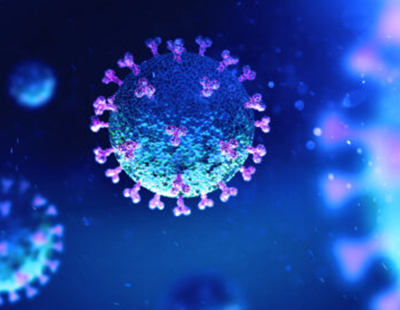Trial of potential virus-blocking treatment in improving COVID-19 outcomes

SPIKE-1 Trial aims to evaluate the use of a Camostat, a drug licensed in Japan for over 30 years to treat pancreatitis, which could reduce the need for hospitalisation and improve symptoms in people with COVID-19.
The multisite clinical trial of the antiviral treatment is being led by Professor Kev Dhaliwal from the Centre for Inflammation Research, in collaboration with colleagues from the University of Oxford and Latus Therapeutics, managed by Cancer Research UK (CRUK)
The study is funded by LifeArc, and part of a £10 million fund to support research and testing of therapeutics that could be rapidly deployed to help address COVID-19.
The randomised Phase 2/3 trial is assessing the use of Camostat in reducing the progression of symptoms of coronavirus by blocking SARS-CoV-2 Spike protein-initiated membrane fusion.
Infection with SARS-CoV-2 (the virus responsible for COVID-19 disease) causes damage to cells and organs throughout the body. One potential treatment strategy for COVID-19 could be to block the virus from entering cells in the first place, thereby preventing cell damage and delaying replication of the virus within the body. Upon entering the body, the SARS-CoV-2 virus latches on to the ACE2 protein on the surface of cells lining the lungs, but the ability of the virus to enter cells is dependent upon another protein TMRPSS2.
Initial research has shown that inactivating the TPMRSS2 protein can stop virus entry into cells and prevent death following COVID-19 infection when tested in mice. Two drugs; camostat and nafamostat, which have been widely used in Japan to treat pancreatic disease and disseminated intravascular coagulation, have been shown to impair TPMRSS2-dependent entry of coronaviruses into cells and may help stop the disease in humans.
Latus Therapeutics with Cancer Research UK secured funding from LifeArc to conduct a Phase II/III multicentre prospective randomised study (SPIKE-1) that will explore the efficacy of camostat in COVID-19 outpatients compared against standard care (randomised 1:1 treatment and control arm). 195 patients will be included in each arm of the study, with patients in the treatment arm receiving orally administered camostat in tablet form at 200mg four times per day for fourteen days and those in the non-treatment arm receiving best supportive care. The primary outcome will be to evaluate the efficacy of camostat to prevent respiratory deterioration in patients with SARS-CoV-2 infection, with hospital admission requiring supplemental oxygen as the primary endpoint.
The trial commenced in Edinburgh in August 2020 and at multiple additional locations across the UK. It is expected to be completed by September 2021.
Watch a recording of a Live Q&A with Professor Kev Dhaliwal about the trial.
People aged 50 or above, or 18 or above with significant risk factors, who have tested positive for COVID-19 are invited to take part in SPIKE-1 clinical trial.



